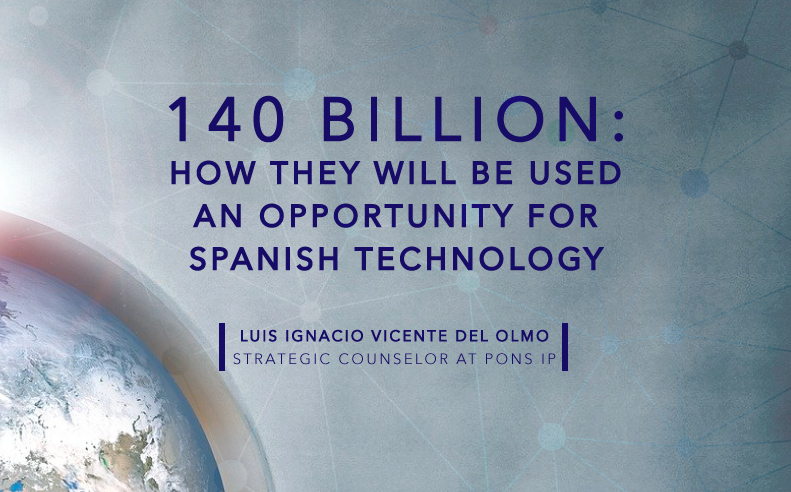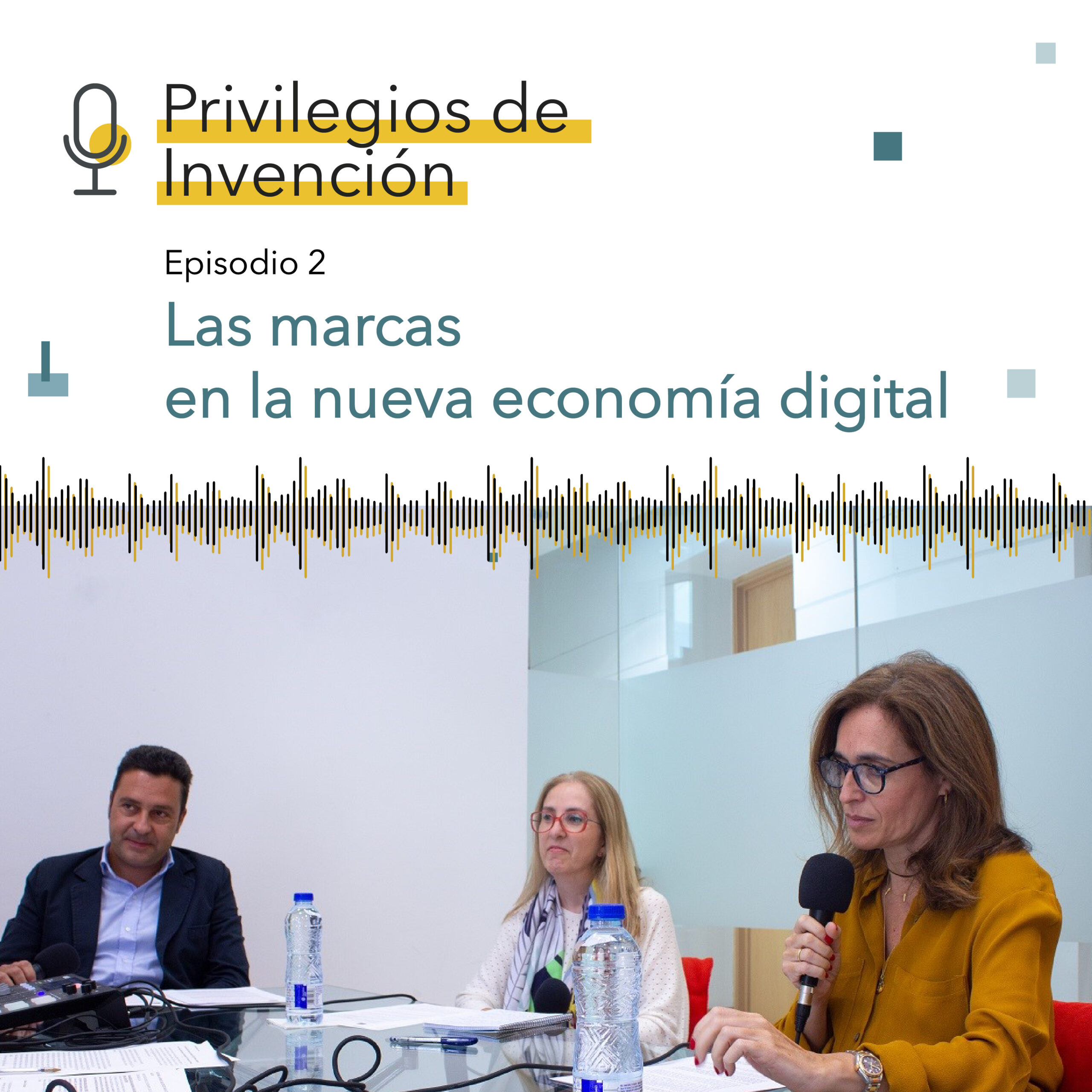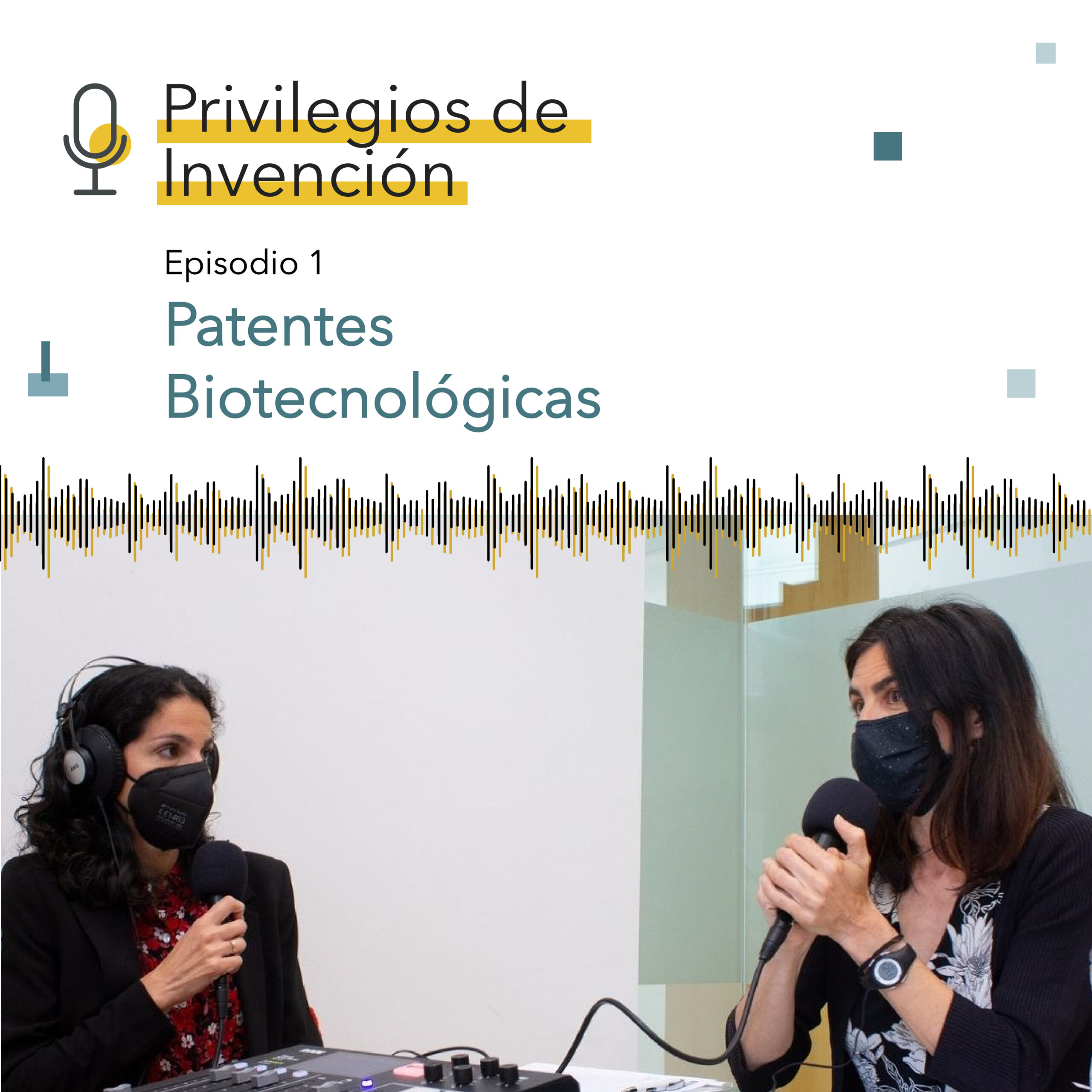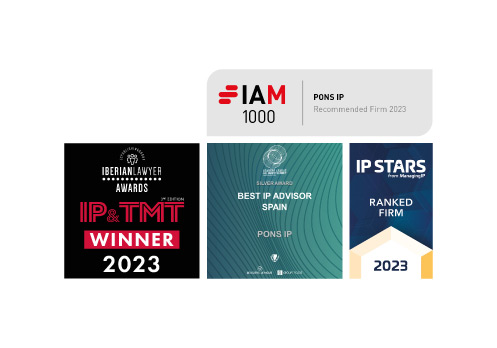Spain will receive 140 billion euros from Europe, more than half of which will be allocated for the 2021-2023 period. These funds are not ‘directly’ granted. Projects must be submitted to the European Commission for approval.
‘Every cloud has a silver lining’. Spain has never seen a budget such as this. The pandemic, with a health impact that has diminished a generation, and with social and economic effects that may weigh down the next two generations, brings Spain, via Brussels, this opportunity. The country cannot afford ‘not to spend’ or ‘waste’ a portion of this budget. To this end, it is essential to manage project results properly, using the mechanisms provided by intellectual property.
The first key aspect is how these funds will be distributed. A 37% will be allocated for ecological transformation, and a 33% for digital transformation. Two of the main priorities will be to strengthen Spain’s industrial capacity and to boost the R&D&I system. These initiatives, like the rest, will have to be aligned. It makes sense to specifically support the development of key technologies developed by its own public and private R&D system. On the other hand, it does not make that much sense to base the industrial transformation of the Spanish industry on non-European technology, which should rather be a guarantor for cybersecurity and adequate industrial information management.
In some of these areas, Spain aims to apply technology that has already been developed, but in others it will have the opportunity to develop its own technology and knowledge, with the ‘incentivizing and multiplying impact of the results. Among these fields are the development of the European industrial data cloud on new sustainable and autonomous means of transport, the development of digital services, or the creation of new electric charging mechanisms to promote electric vehicles.
One of the specific points mentioned by the Commission is the creation of industrial data exchange platforms to promote the development of the industry 4.0. To this end, it is important to develop a ‘non-personal’ data regulation, which, being guaranteed at the level of personal data, enables the development of an industrial data economy pioneer in the world.
A second important point is what would the approval process for the global framework be like. The European Commission says that Member States ‘can formally submit their plans from the moment the mechanism is legally in force, and Brussels sets the deadline for submission of plans at April 30th. However, the European Commission encourages Member States to submit information about the Program evolution from October 2020.
A third fundamental aspect is to understand which concepts will be funded. Those of us who have worked on various EU R&D framework programs know that they can be very restrictive in this respect. In this case, Brussels ‘will support investments and reforms that have a positive and long-lasting impact on the economy and the society.’ As opposed to the usual definitions of ‘investment’ and ‘reform’ used by the Commission, in this case, broader concepts are employed. Thus, fixed capital is related to investments, for example, in infrastructures or buildings, but also in some intangible assets such as research and development, patents or software.
Similarly, ‘reforms’ should be understood in a broad sense, related to actions or processes aimed at making long-lasting improvements in the operation of markets, institutional structures, public administrations or key policies, such as green and digital transitions.
Bearing in mind that the management of EU funds will be carried out by means of large pulling projects, I would like to make a few suggestions.
It should be borne in mind that projects are the means, not the end, even if they are economically attractive. For the sake of efficiency, the implementation of large, ambitious projects with significant results will be prioritized.
On the other hand, projects have to be well-managed. The allocation mechanism will take into account clear, realistic, well-defined, verifiable milestones and targets directly determined or influenced by public policies.
As mentioned before, it is important to use the opportunities offered by intellectual property management to justify the technological approach to projects, the identification of their results and their protection for development. In addition to promoting the development of in-house technology, these funds must act as a catalyst for the public and private purchase of innovation, in order to encourage the incorporation of technology and science developed in Spain into industrial transformation processes.
The European Commission makes several specific suggestions to Spain, including ‘improve coordination between different levels of government and strengthen the public procurement framework to support recovery in an efficient manner.’ I also suggest coordinating with social agents, with key actors in the R&D system, and with specialists in technology and intellectual property management.
Spain has the capacity to overcome this scourge it is experiencing. It is a leader in industrial project management and in the development of some digital, industrial and energy-related technologies. Through the Horizon 2020 Program, Spain has proved that it can lead R&D&I projects. It is also becoming a leader in technology and intellectual property management. Therefore, now it should just use this opportunity by joining effort and talent.
If 40 years ago Spain went through the period called “Transition” as a positive period of evolution from the Dictatorship to the Democracy, now it is time for its “Transformation”, in capital letters as well.
Luis Ignacio Vicente del Olmo,Strategic Counselor at PONS IP




